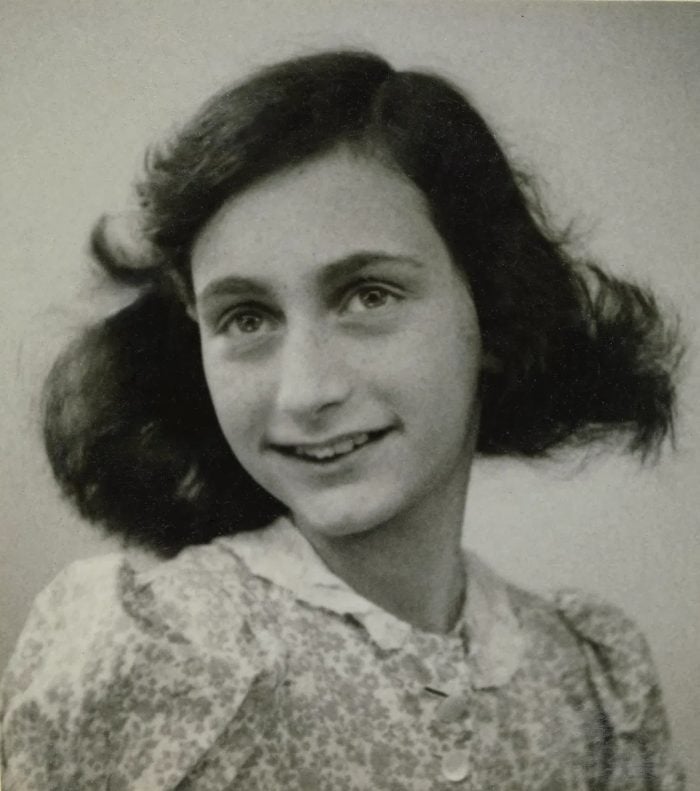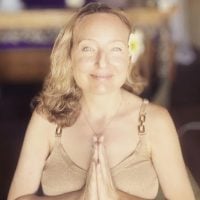*Editor’s Note: Elephant Journal articles represent the personal views of the authors, and can not possibly reflect Elephant Journal as a whole. Disagree with an Op-Ed or opinion? We’re happy to share your experience here.
If Anne Frank were Palestinian today, would you speak up?
As children, many of us read “The Diary of Anne Frank.” We turned the pages in horror, struggling to fathom the sheer brutality of what had happened to her, to her family, and to millions of others during the Holocaust.
For me, as a German child growing up, the greatest shock wasn’t just the atrocities themselves. It was the silence. The silent complicity of an entire nation that watched as Jewish families were dragged from their homes, as children disappeared from their schools, as entire communities were erased.
We told ourselves we would have been different. We would have spoken up. We would not have turned away. And yet, here we are. Silent, once again.
The dangerous myth of “never again”
We were told never again. It became a mantra, a sacred vow. Never again would we allow genocide to unfold before our eyes. Never again would we stand idly by while entire populations were slaughtered. Never again would we make excuses for the oppressors while blaming the oppressed.
But what does never again mean when, right now, a genocide is unfolding in Gaza—and the world (for the most part) watches in muted complicity?
69%–80% of Israel’s military funding comes from the United States. The UK continues to supply Israel with weapons. The EU emboldens Israel while sanctioning Russia for the invasion of Ukraine. The hypocrisy is blatant.
The silence is deafening.
The belief that silence is neutral is one of the greatest myths of our time. Silence is never neutral. Silence is a choice. Silence is complicity.
Desmond Tutu once said, “If you are neutral in situations of injustice, you have chosen the side of the oppressor.”
This applies now more than ever. Silence is a privilege, one afforded only to those who have the luxury of being unaffected.
But silence is not just inaction: it is an active force. Silence allows oppression to flourish. Silence emboldens the oppressors. Silence ensures that history repeats itself.
And history is repeating itself.
Who are today’s Anne Franks?
Right now, thousands of Palestinian children are being slaughtered—over 200 just in the last three days, as I write these words.
They are scribbling their last words into journals, drawing pictures of bombs falling from the sky, recording their final messages on social media.
We used to wonder what it was like to be the neighbours of Jewish families in the 1930s and 40s. To see them dragged from their homes, to hear their cries, and to do nothing.
But we don’t have to wonder anymore.
We are those neighbours now.
Every day, we scroll past the images of Palestinian children lying in rubble. We watch videos of parents screaming over the bodies of their sons and daughters. We see the hospitals bombed, the doctors breaking down from exhaustion, the journalists being targeted and losing their lives for showing us the truth.
And what do we do?
We shake our heads. We say it’s awful. We share a post or two—before moving on with our lives.
This is how it happens. This is how history repeats itself.
I spent years trying to understand how an entire nation like Germany could have stayed silent while millions were being murdered.
Now, at 44, I understand.
It’s not a German trait. It’s a human trait.
We justify our silence in many ways: It’s complicated. It’s not my fight. I don’t know enough. I don’t want to get involved. It won’t make a difference. I’m afraid of speaking up.
We rationalize. We compartmentalize. We convince ourselves that speaking out is pointless, that it won’t change anything.
But there is no such thing as silent resistance.
James Baldwin once said, “Not everything that is faced can be changed, but nothing can be changed until it is faced.”
Remaining silent is the same as looking away. Looking away is the same as acceptance. Acceptance is the seed of complicity.
We are complicit.
One day, the world will wake up to the horror of what happened in Gaza. Just as they woke up to the horror of the Holocaust, of the Rwandan genocide, of apartheid South Africa.
One day, the little Palestinian diaries and drawings we scroll past today will be bound into books, displayed in museums, and read by schoolchildren who will struggle to understand how the world allowed such cruelty to unfold.
One day, our descendants will ask us, “What did you do?”
And what will we say?
That we were too busy? That we didn’t know? That it wasn’t our place?
Or will we be able to say, “I spoke up. I did everything I could.”
Speaking up is a moral obligation
No one is asking for perfection. No one is asking for you to singlehandedly dismantle oppressive systems. But silence is no longer an option.
Speaking up doesn’t mean having all the answers. It doesn’t mean being an expert (I know I am not by all means). It doesn’t mean knowing the entire history of the conflict.
Speaking up means saying: “This is wrong.”
It means rejecting propaganda that justifies genocide. It means refusing to be gaslit into believing that thousands of dead children are collateral damage. It means acknowledging the humanity of Palestinians as equal to that of Israelis.
It means demanding that your government stop funding war crimes in your name.
And yes, it means being uncomfortable.
But if speaking out for humanity is uncomfortable, what does that say about the world we live in?
We tell ourselves that history repeats itself. But history does not repeat itself: we repeat it.
We repeat it with our silence, our excuses, our wilful ignorance.
But we can break the cycle.
One voice turns into two. Two turn into a movement. A movement turns into change.
And we have the power to be part of that change.
So ask yourself: If Anne Frank were Palestinian today, would you speak up—or would you stay silent?
And if your answer is silence, ask yourself—why?
~


 Share on bsky
Share on bsky





Read 39 comments and reply